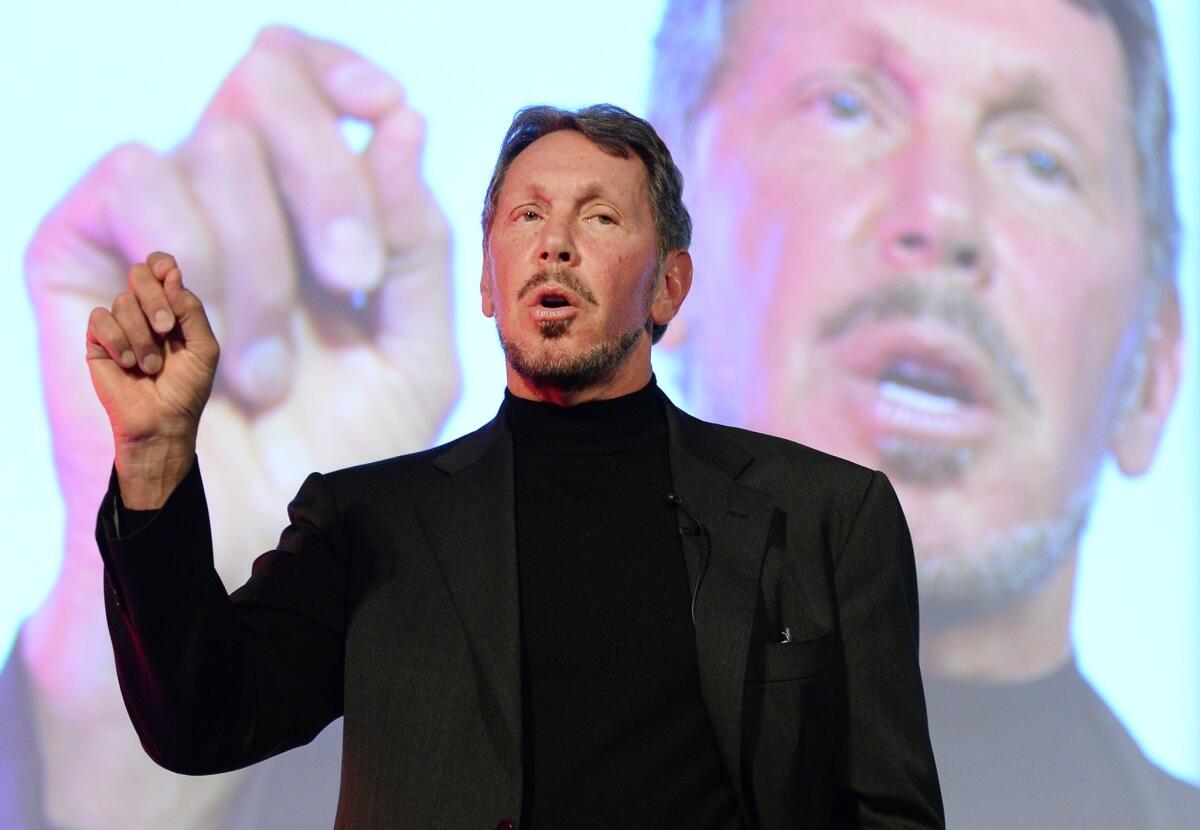Column: ‘Bosses need love too’ is a totally 2020 thing to say

I’ve been struggling in recent days to come up with that one perfect example of how screwed up this nation’s priorities have become amid the worst public-health crisis most of us have ever — and hopefully will ever — experience.
There are so many to choose from: The myriad missteps of the Trump administration, the every-man-for-himself policies put in place by some businesses, the petty squabbles of self-serving lawmakers, the inability of many Americans to even agree on basic facts.
Then I came across a recent academic study focusing on how workplaces would be better if employees showed more love to their bosses, and I thought: “That’s a totally 2020 thing to say.”
Not that bosses don’t need love — we all do.
But as the year draws to a merciful close, it’s striking how often ordinary Americans were told in past months to feel sorry for those with political and economic control over our lives.
This was the year America’s ruling class portrayed itself as the nation’s biggest victim, deserving of our sympathy and support.
This was the year everything turned upside down.
The unloved-bosses study finds that when managers feel better about themselves, they can do a better job of showing support for subordinates.
“Bosses are people too. It’s important to recognize that,” said Maureen Ambrose, a professor of business ethics at the University of Central Florida and coauthor of the study.
“Almost all the previous work in this area has focused on what supervisors can do for employees,” she told me. “We’ve ignored that employees can have a really big impact on the lives of supervisors.”
Ambrose called this “upward appreciation.”
Fair enough. And let me reiterate: We’re all human. We all want to feel that we’re appreciated and that our hard work is noticed.
But at the risk of seeming callous, leadership entails qualities that go above and beyond what is typically required of ordinary people.
We, the led, trust our leaders to be wiser, stronger, smarter than we are. Why else would we follow them?
I subscribe to the Spider-Man School of Management — with great power comes great responsibility. That’s precisely why President Truman had a sign on his desk saying the buck stops with him.
Compare that with all the times President Trump whined about “presidential harassment,” and insisted he was the victim of a sprawling conspiracy to undermine his authority and deny him his just desserts, beyond his preferred two scoops of ice cream.
I spent much of the year chronicling various instances of companies placing their own interests before those of customers. To be sure, this was a horrible year for most businesses, with the COVID-19 pandemic devastating profits.
But did that justify airlines, cruise operators and hotels making it difficult if not impossible for many people to receive refunds for canceled trips?
Did it make it permissible for vehicle insurers to keep charging the same rates even though they knew everyone was driving a lot less?
Did it erase the shocking ethical issues that arose as drug companies and health insurers turned the screws on patients trying to survive extraordinarily challenging circumstances?
Perhaps no industry showed its true colors more profoundly than airlines.
American Airlines, for one, spent more than $15 billion from 2014 to 2020 buying back its own stock and enriching shareholders — all the while hitting passengers with billions of dollars in dubious fees and making economy-class travel as pleasant as a colonoscopy.
Yet as soon as the pandemic caused a plunge in air travel, American and other carriers instantly sought, and received, $25 billion in taxpayer funds to bail them out. And when that money ran out, they promptly asked for another $25 billion.
The industry, keenly aware of how money-grubbing it looked after years of padding its own pockets, announced recently that it was doing away with its onerous $200 fees to change itineraries — fees that totaled almost $3 billion last year.
“They’re gone for good,” declared Ed Bastian, chief executive of Delta Air Lines.
More than a few people undoubtedly were left wondering how the industry got away with charging billions of dollars worth of fees that were apparently so superfluous, they could be eliminated forever overnight.
Do Bastian and other airline CEOs deserve a hug? Ambrose’s study suggests they do.
My feeling is that leaders don’t merit special treatment for doing the right thing — that’s what they’re supposed to do.
And when the entire country is teetering on the verge of catastrophe, the default setting should be that our political and economic leaders step up and do their jobs.
Yet 2020 — this collection of almost 365 Opposite Days — was the year we were told to feel the pain of our leaders, to feel pity for the enormous burdens they carried.
Yes, it’s been a tough time to hold a position of authority. There’s no management challenge greater than managing during an emergency.
But you know what? That’s part of the job description.
I’d argue that you can judge a leader by how he or she handles hardship, just as you can judge a business by how it treats customers when things get rough.
The unloved-bosses study is itself a victim of bad timing, similar to Oracle co-founder Larry Ellison announcing the other day that he’s moved permanently to Hawaii, where he’ll oversee his formerly California-based, now Texas-based, software company via Zoom.
Maybe it didn’t occur to Ellison how that announcement would fall with a thud among the millions of Americans who can’t ride out the pandemic on their own private Hawaiian island (he owns 98% of Lanai).
Maybe Ellison, with a net worth of $75 billion, just isn’t feeling enough love from his 135,000 employees.
Ambrose’s study, published in the Journal of Management, concluded that when bosses experience support from their underlings, they feel more energized, which translates into better job performance (for them, and maybe in turn for us).
“Our perspective identifies a relatively easy and low-cost way for subordinates to positively impact supervisors’ attitudes, well-being and behavior,” the study says, as if the thing that’s troubled workers most during the pandemic has been how we can improve our managers’ sense of self-worth.
Like I say, that’s a totally 2020 way of looking at things.
Maybe in 2021 we can go back to that old-fashioned idea that it’s part of the job of being a leader to make subordinates feel appreciated.
Maybe we can remember that it’s the nurses and teachers and restaurant workers and all other rank-and-file employees trying to make surreal times as normal as possible who are the true heroes of the pandemic.
But if my boss needs a hug, well, here’s a virtual hug. We’re all in this together.
Too soon to ask for a raise?
More to Read
Inside the business of entertainment
The Wide Shot brings you news, analysis and insights on everything from streaming wars to production — and what it all means for the future.
You may occasionally receive promotional content from the Los Angeles Times.











